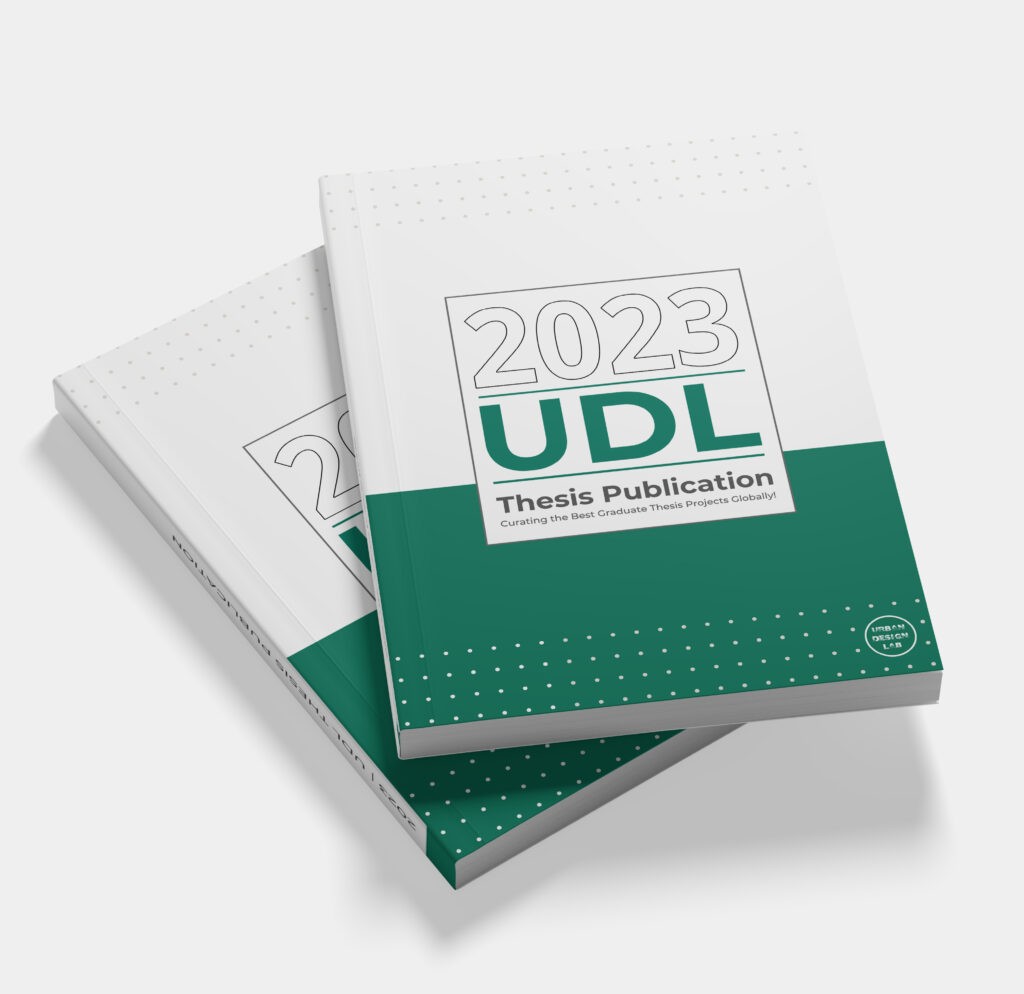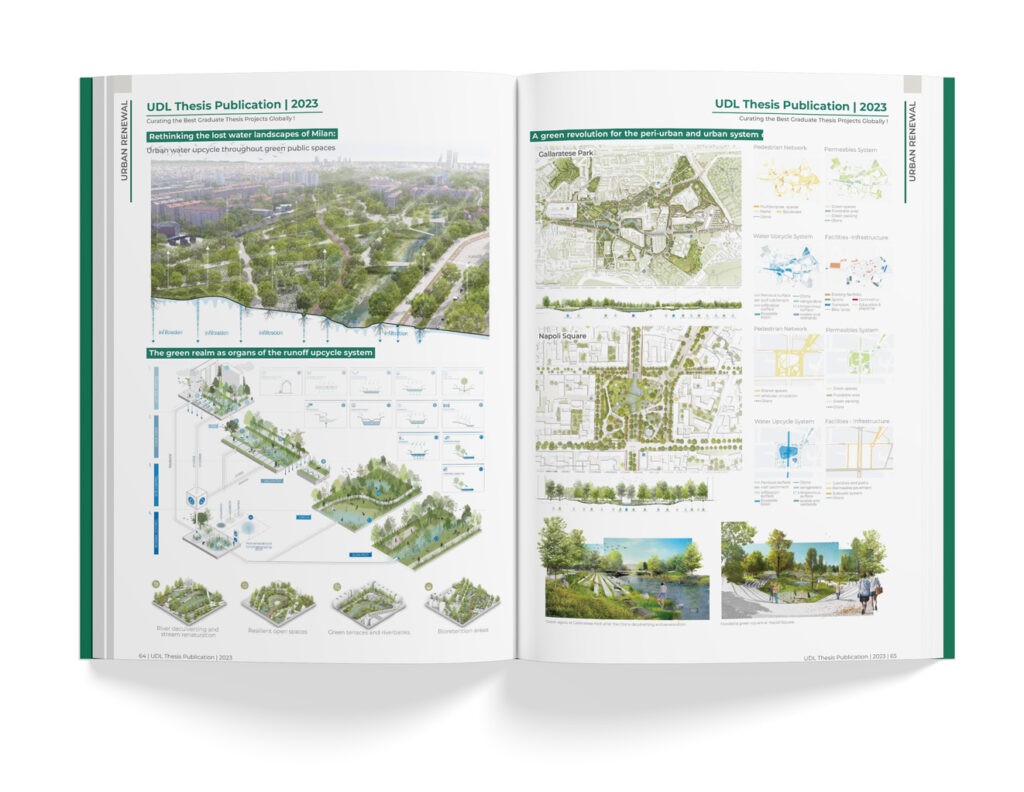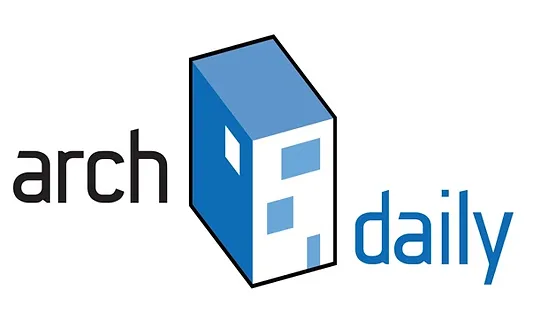- Privacy Policy

Home » Thesis Format – Templates and Samples

Thesis Format – Templates and Samples
- Table of Contents
A thesis format provides a structured framework for presenting research in an organized and academically acceptable manner. It ensures consistency in layout, style, and structure, enabling readers to navigate and understand the document effectively. Whether you are working on an undergraduate thesis, master’s dissertation, or doctoral dissertation, adhering to the correct thesis format is crucial for academic success.
This article explains the essential components of a thesis, provides examples of templates, and includes tips for creating a polished and well-structured document.

Thesis Format
A thesis format refers to the standardized layout and presentation style required for a thesis. It governs elements like font, margins, chapter organization, and referencing style, ensuring that the thesis meets institutional or academic publication standards.
Key Features of a Thesis Format:
- Consistency: Creates a uniform presentation throughout the document.
- Readability: Provides clarity and ease of navigation for readers.
- Compliance: Aligns with institutional guidelines and academic standards.
For example, a university might require 1-inch margins, Times New Roman font size 12, double-spacing, and APA referencing style for all submitted theses.
Components of a Thesis Format
1. title page.
The title page includes the thesis title, author’s name, institution, department, supervisor’s name, and submission date. Some institutions may also require the inclusion of their logo.
Example Title Page:
Title: Exploring the Role of Artificial Intelligence in Education Author: Jane Doe Institution: University of Excellence Program: Master of Science in Computer Science Submission Date: August 2024
2. Abstract
The abstract is a concise summary (150–300 words) that highlights the research objectives, methodology, key findings, and implications. It serves as a snapshot of the entire thesis for readers.
3. Acknowledgments
This optional section allows the author to express gratitude to individuals or organizations that supported their research.
4. Table of Contents
The table of contents lists all chapters, sections, and subsections along with their corresponding page numbers. This section ensures easy navigation for readers.
Example Table of Contents:
- Introduction ……………………………………….. 1
- Literature Review …………………………….. 10
- Methodology ……………………………………. 25
- Results ……………………………………………. 40
- Discussion ……………………………………….. 55
- Conclusion ……………………………………… 70 References ………………………………………………. 80 Appendices ………………………………………………. 90
5. List of Figures and Tables
This section lists all figures and tables in the document, along with their titles and page numbers.
6. Main Body
The main body is the core of the thesis and includes the following sections:
a. Introduction
- Provides background information and context for the research.
- States the research problem, objectives, and questions.
- Outlines the structure of the thesis.
b. Literature Review
- Summarizes and critically evaluates existing research related to the topic.
- Identifies gaps in knowledge and justifies the research.
c. Methodology
- Describes the research design, data collection methods, and analytical techniques used.
- Includes ethical considerations and limitations of the study.
d. Results/Findings
- Presents data in an organized manner using tables, charts, and graphs.
- Focuses on key patterns, trends, and insights.
e. Discussion
- Interprets the findings in relation to the research objectives and existing literature.
- Highlights implications, limitations, and suggestions for future research.
f. Conclusion
- Summarizes the key findings and their significance.
- Reiterates how the research contributes to the field.
7. References/Bibliography
Lists all sources cited in the thesis in the required referencing style (e.g., APA, MLA, Chicago). This section ensures proper attribution and academic integrity.
8. Appendices
Includes supplementary materials such as raw data, questionnaires, interview transcripts, or additional figures.
Thesis Outline
- Thesis Title
- Author’s Name
- Institution Name
- Department/Faculty
- Supervisor’s Name
- Submission Date
A brief summary (150–300 words) covering the research problem, objectives, methods, key findings, and significance.
3. Acknowledgments (Optional)
Expressions of gratitude to individuals or organizations that supported your research.
Lists all sections, chapters, and sub-sections with their corresponding page numbers.
5. List of Figures and Tables (If applicable)
Includes titles and page numbers for all figures and tables used in the thesis.
Chapter 1: Introduction
1.1 Background of the Study 1.2 Research Problem 1.3 Research Objectives 1.4 Research Questions 1.5 Scope of the Study 1.6 Significance of the Study 1.7 Organization of the Thesis
Chapter 2: Literature Review
2.1 Theoretical Framework 2.2 Review of Related Studies 2.3 Identification of Research Gaps
Chapter 3: Methodology
3.1 Research Design 3.2 Sampling Techniques 3.3 Data Collection Methods 3.4 Analytical Tools and Techniques 3.5 Ethical Considerations
Chapter 4: Results/Findings
4.1 Presentation of Data (Tables, Graphs, Charts) 4.2 Analysis and Interpretation of Results
Chapter 5: Discussion
5.1 Summary of Findings 5.2 Comparison with Existing Literature 5.3 Implications of the Findings 5.4 Limitations of the Study
Chapter 6: Conclusion and Recommendations
6.1 Summary of Key Points 6.2 Recommendations for Practice or Policy 6.3 Suggestions for Future Research
7. References
A comprehensive list of all sources cited in the thesis, formatted according to the required referencing style (e.g., APA, MLA, Chicago).
8. Appendices (If applicable)
Includes supplementary materials such as raw data, survey questionnaires, interview transcripts, or additional figures.
Thesis Format Templates
Template 1: standard thesis format.
- Acknowledgments
- List of Figures and Tables
- Introduction
- Literature Review
- Methodology
- Results/Findings
Template 2: APA Style Thesis Format
- Title Page formatted according to APA style.
- Abstract limited to 250 words.
- References following APA citation guidelines.
- Appendices for additional materials.
Tips for Formatting a Thesis
- Follow Institutional Guidelines: Always refer to the specific requirements provided by your institution or department.
- Use Consistent Styles: Ensure uniformity in headings, fonts, and spacing throughout the document.
- Leverage Technology: Use word processing tools like Microsoft Word or LaTeX to create templates and manage references.
- Proofread Carefully: Check for grammatical errors, formatting inconsistencies, and missing references.
- Consult Examples: Review well-structured theses from your institution for guidance.
A well-organized thesis format is essential for presenting research professionally and effectively. By adhering to a structured format and incorporating all necessary components—such as the title page, abstract, methodology, and references—students can ensure their thesis meets academic standards. Using templates and examples as guides, along with careful attention to detail, simplifies the process and ensures a polished final document.
- Creswell, J. W. (2018). Research Design: Qualitative, Quantitative, and Mixed Methods Approaches . Sage Publications.
- Swales, J. M., & Feak, C. B. (2012). Academic Writing for Graduate Students: Essential Tasks and Skills . University of Michigan Press.
- Turabian, K. L. (2018). A Manual for Writers of Research Papers, Theses, and Dissertations . University of Chicago Press.
- American Psychological Association. (2020). Publication Manual of the American Psychological Association (7th ed.).
- The University of Cambridge. (2023). Thesis Formatting Guidelines . [Online resource from institutional repository].
About the author
Muhammad Hassan
Researcher, Academic Writer, Web developer
You may also like

Limitations in Research – Types, Examples and...

APA Table of Contents – Format and Example

Delimitations in Research – Types, Examples and...

Figures in Research Paper – Examples and Guide

Future Research – Thesis Guide

Research Design – Types, Methods and Examples
Graduate Research Hub
- Preparing my thesis
- Incorporating your published work in your thesis
- Examples of thesis and chapter formats when including publications
The following examples are acceptable ways of formatting your thesis and chapters when including one or more publications.
Essential requirements
All theses with publications must have the following:
- Declaration
- Preface – noting collaborations, and contributions to authorship
- Acknowledgements
- Table of contents
- List of tables, figures & illustrations
- Main text/chapters
- Bibliography or list of references
Main text examples
- Chapter 1: Introduction
- Chapter 2: Literature review
- Chapter 3: Methods
- Chapter 4: Paper 1 & general discussion
- Chapter 5: Paper 2
- Chapter 6: Regular thesis chapter – results
- Chapter 7 : Regular thesis chapter/general discussion tying in published and unpublished work
- Chapter 8: Conclusion
- Appendices - May include CD, DVD or other material, also reviews & methods papers
- Chapter 2: Methods
- Chapter 3: Paper 1
- Chapter 4: Regular thesis chapter
- Chapter 6: Regular thesis chapter, final preliminary study
- Chapter 7: General discussion
- Chapter 5: Regular thesis chapter
- Chapter 6: Regular thesis chapter
- Chapter 7: Regular thesis chapter, final preliminary study
- Chapter 8: General discussion
- Chapter 4: Paper 2 - e.g. data paper, including meta analyses
- Chapter 5: Paper 3
- Chapter 6: Paper 4
- Chapter 7: Paper 5
- Chapter 3: Major paper
- Chapter 4: Normal thesis chapter, final preliminary study
- Chapter 5: General discussion
Chapter examples
- Introduction – including specific aims and hypotheses
- Introduction – including specific aims, hypotheses
- Methods – results (including validation, preliminary) not included in the paper
- Results (including validation, preliminary) not included in paper
- Discussion – expansion of paper discussion, further method development
- Resources for candidates
- Orientation and induction
- Mapping my degree
- Principles for infrastructure support
- Peer activities
- Change my commencement date
- Meeting expectations
- Working with my supervisors
- Responsible Research & Research Integrity
- Outside institutions list
- Guidelines for external supervisors
- Pre-confirmation
- Confirmation
- At risk of unsatisfactory progress
- Unsatisfactory progress
- Add or drop coursework subjects
- Apply for leave
- Return from leave
- Apply for Study Away
- Return from Study Away
- Change my study rate
- Check my candidature status
- Change my current supervisors
- Request an evidence of enrolment or evidence of qualification statement
- Change my project details
- Change department
- Transfer to another graduate research degree
- Late submission
- Withdraw from my research degree
- Check the status of a request
- Re-enrolment
- Advice on requesting changes
- Extension of candidature
- Lapse candidature
- How to cancel a form in my.unimelb
- Resolving issues
- Taking leave
- About Study Away
- Finishing on time
- Accepting an offer for a joint PhD online
- Tenured Study Spaces (TSS) Usage Guidelines
- Tenured Study Spaces Procedures
- Research skills
- Academic writing and communication skills
- Building professional and academic networks
- Research internships
- Commercialising my research
- Supplementary PhD Programs
- Writing my thesis
- Thesis with creative outputs
- Research Integrity in my Thesis
- Graduate researchers and digital assistance tools
- TES Statuses
- Submitting my thesis
- Depositing multiple components for your final thesis record
- The Chancellor's Prize
- TES Graduate Researcher FAQs
- Career planning
- Publishing my research
- Getting support
- Key graduate research contacts
- Melbourne Research Experience Survey
- Quality Indicators for Learning and Teaching (QILT)
- Current Students

- Langson Library
- Science Library
- Grunigen Medical Library
- Law Library
- Connect From Off-Campus
- Accessibility
- Gateway Study Center

Email this link
Thesis / dissertation formatting manual (2024).
- Filing Fees and Student Status
- Submission Process Overview
- Electronic Thesis Submission
- Paper Thesis Submission
- Formatting Overview
- Fonts/Typeface
- Pagination, Margins, Spacing
- Paper Thesis Formatting
- Preliminary Pages Overview
- Copyright Page
- Dedication Page
- Table of Contents
- List of Figures (etc.)
- Acknowledgments
- Text and References Overview
- Figures and Illustrations
- Using Your Own Previously Published Materials
- Using Copyrighted Materials by Another Author
- Open Access and Embargoes
- Copyright and Creative Commons
- Ordering Print (Bound) Copies
- Tutorials and Assistance
- FAQ This link opens in a new window
UCI Libraries maintains the following templates to assist in formatting your graduate manuscript. If you are formatting your manuscript in Microsoft Word, feel free to download and use the template. If you would like to see what your manuscript should look like, PDFs have been provided. If you are formatting your manuscript using LaTex, UCI maintains a template on OverLeaf.
- Word: Annotated Template (Dissertation) 2025 Microsoft Word document of a template with annotations of what to look out for.
- PDF: Annotated Template (Dissertation) 2025 PDF of a template with annotations of what to look out for.
- Word: Thesis Template 2025 Editable template of the Master's thesis formatting.
- PDF: Thesis Template 2025 PDF template of the Master's thesis formatting (not editable).
- Word: Dissertation Template 2025 Editable Microsoft Word template of the PhD Dissertation formatting.
- PDF: Dissertation Template 2025 PDF template of the PhD Dissertation formatting (not editable).
- Overleaf (LaTex) Template
- << Previous: Tutorials and Assistance
- Next: FAQ >>
- Last Updated: Dec 10, 2024 11:32 AM
- URL: https://guides.lib.uci.edu/gradmanual
Off-campus? Please use the Software VPN and choose the group UCIFull to access licensed content. For more information, please Click here
Software VPN is not available for guests, so they may not have access to some content when connecting from off-campus.
- Hispanoamérica
- Work at ArchDaily
- Terms of Use
- Privacy Policy
- Cookie Policy
- Architecture Competitions
UDL Thesis Publication 2024

- Published on March 22, 2024
UDL Thesis Publication 2024 | Call for Submissions
Following the resounding success of the UDL Thesis Publication | 2023, which featured 37 remarkable thesis projects hailing from 20 diverse countries, the Urban Design Lab proudly presents the highly anticipated UDL Thesis Publication | 2024.
About the Publication
The Urban Design Lab thesis publication serves as a prestigious platform, inviting post-graduate and under-graduate students worldwide to showcase their pioneering design and research-based thesis projects within the realms of urban design, landscape architecture, and planning. By offering this platform, our aim is to spotlight global design and research trends, providing invaluable insights for both academic and professional communities while nurturing innovation and creativity in the urban design field.
Scope of the Publication
In the forthcoming publication, we aim to curate a selection of outstanding under-graduate and post-graduate thesis projects completed within the past five years, all centered around urban environments. These exemplary submissions will be compiled into a dedicated book, serving as the official record of the seminar proceedings. Each publication will be bestowed with an International Standard Book Number (ISBN), ensuring easy reference and global recognition.
1. Urban Renewal: Encompassing the conservation, revitalization, and heritage revival of urban areas. 2. Urban Landscapes: Focusing on the management of natural and built environments within urban settings. 3. Urban Management: Emphasizing the comprehensive management of physical, social, economic, and infrastructural aspects in urban areas. 4. Urban Networks: Highlighting connectivity, transit, and mobility within and between urban locales.
Submission Deadline - 20th July, 2024
Certification and Publication
All participants will receive certificates of participation, with the top 40 selected thesis entries featured in a distinguished publication bearing an ISBN number. Moreover, these top participants will have the unique opportunity to present their work to an esteemed panel of urban experts and professionals through an exclusive online seminar. Additionally, 10 Honorable Mentions will be recognized and featured on our website and social media platforms.
Eligibility Criteria
Participation in the UDL Thesis Publication requires adherence to specific eligibility criteria. Graduate students must have completed their undergraduate or postgraduate thesis within the past five years, focusing on urban design, landscape architecture, or planning. Additionally, the thesis must have received a passing grade from an accredited institution. Fulfillment of these criteria is imperative, as only works meeting these standards will be considered for inclusion in the publication.
Online Seminar
The culminating publication seminar will be conducted online over two days, featuring panel discussions and presentations exclusively from the selected participants. Prior to the seminar, the selected 40 participants will receive detailed scheduling, presentation, and formatting guidelines. Presentations will be categorized based on the themes of each individual seminar, adhering strictly to specified time limits.
Join us as we celebrate the vibrant tapestry of urban design innovation and research excellence at the UDL Thesis Publication | 2024. Let your voices be heard, and your visions shape the future of our cities.
Download the information related to this competition here.
Registration Deadline
Submission deadline.
This competition was submitted by an ArchDaily user. If you'd like to submit a competition, call for submissions or other architectural 'opportunity' please use our "Submit a Competition" form. The views expressed in announcements submitted by ArchDaily users do not necessarily reflect the views of ArchDaily.
- Sustainability
世界上最受欢迎的建筑网站现已推出你的母语版本!
想浏览archdaily中国吗, you've started following your first account, did you know.
You'll now receive updates based on what you follow! Personalize your stream and start following your favorite authors, offices and users.

UDL Thesis Publication
Curating the best graduate thesis project globally.
(PAPERBACK BOOK)
(BOOK OF ABSTRACTS)
About the Publication
The UDL Thesis Publication- 2023 is a significant resource for professionals and students in urban design, landscape, architecture, and planning. This comprehensive book showcases innovative projects from post-graduate and under-graduate students across 20 countries, highlighting the latest global trends and research in urban development. Featuring 37 selected thesis projects, the publication is a must-have for those seeking informative insights and inspiration in urban design and planning.
UDL Thesis Publication 2024
Curating the best thesis Globally !
Benefits of the Book
Comprehensive Insight into Successful Thesis Projects
Diverse Range of Topics and Design Approaches
Inspiration for Future Thesis Projects

Fusion of Theory and Practical Application
Platform for Global Dialogue and Knowledge Exchange
Multidisciplinary Approach covering various urban themes
Overview of the Book

Publication Themes and Participants
Urban renewal.
This theme encompasses the conservation, revitalization, and heritage revival of urban areas.
Urban Landscapes
This theme focuses on the management of the natural and built environment in urban areas.
Urban Management
This theme emphasizes the physical, social, economic and infrastructure management of urban areas.
Urban Networks
This theme focuses on connectivity, linkages, transit and mobility within and between urban areas.
Theme: Urban renewal

Mark Angelo
Manila, philippines, far eastern university - manila | manila, philippines.


Bhumika Batra
Noida, india, amity school of architecture and planning | noida, india.

Shambhavi Mishra
Greater noida, india, apeejay school of architecture and planning, greater noida, india.

Shirin Sachin Vaidya
Navi mumbai, india, lokamanya tilak institute of architecture and design studies, navi mumbai, india.

Tabassum Sultana
Dhaka, bangladesh, university of asia pacific | dhaka, bangladesh.

Sama Hisham
October city, egypt, 6th of october university | october city, egypt.

Virgilio Diaz
Milan, italy, politecnico di milano | milan, italy.

Karelia Diaz

Priy Bhushan
Ahmedabad, india, cept university | ahmedabad, india.

Maria Zimnoch
Kraków, poland, cracow university of technology.

Katarzyna Orzechowska

Aman Deep Gupta
Jalandhar, india, lovely professional university.

Chandigarh, India
Chandigarh college of architecture, punjab university.

Elisa de Andrade Naud
Theme: urban landscapes.

Dimpi Kantariya
Rajkot, india, indubhai parekh school of architecture.

Politecnico di Milano, Milan, Italy

Manish M Nair
Ranchi, india, birla institute of technology, ranchi, india.

Larissa Muller
Sao paulo, brazil, delft university of technology (tu delft).

Aya Mohamed
Hochschule anhalt | germany.

Manna Maria Nixon
Trivandrum, india, college of engineering trivandrum.

Melbourne, Australia
University of melbourne, theme: urban management.

Abhishek Sharma
Jaipur, india, aayojan school of architecture.

Mohamed Shameem
Mysore, india, wadiyar centre for architecture.

Andrea Castro
San pedro, costa rica, university of costa rica.

Josué Zeledón

Verónica Campos

Angélica Solís

Aligarh, India
Aligarh muslim university.

Shreyasi Singha
Guwahati, india, bms college of architecture | bengaluru, india.

Seoul, S. Korea
Seoul national university of science and technology.

Savri Kulkarni
Pune, india, sinhgad college of architecture |.

Eraño Joshua
Quezon city, philippines, technological institute of the philippines.

Quito Ecuador
University of the americas.

Shivangi Agarwal
Tajpur, india, smef’s brick school of architecture | pune, india.

Jahnavi Bhatt
Delft, netherlands, tu delft | delft, netherlands.

Rasha Mahmoud
Faculty of engineering- cairo university.

Sayantani Saha
Howrah, india, om dayal college of engineering and architecture |, theme: urban network.

Bogotá, Colombia
Pontificia universidad javeriana.

Sreethu P R
Thrissur, india, rv college of architecture | bengaluru, india.

Shrida Venkatesh
Ulysses sengupta, manchester school of architecture.

Toby Godfray
London, united kingdom, king’s college london.

Online Thesis Seminar is available on YouTube
Day 1: 26th august, 2023, day 1: 27th august, 2023.

Seminar Panel Members

Amita Sinha
Urbana, united states, m.arch, virginia polytechnic institute & state university, blacksburg, va, former professor, department of landscape architecture, university of illinois.

Delhi, India
Master of architecture & master of city planning, university of pennsylvania, usa, urban designer, upalghosh associates, delhi, india.

Manoj Kumar Kini
M.arch (urban design), school of planning & architecture, new delhi, managing director ktil & muziris heritage project, govt of kerala.

Sunny Bansal
M.tech. specialisation in infrastructure design & management, iit kharagpur, assistant professor, school of architecture, anant national university, ahmedabad..

Dr. Amita Sinha, the author of “Cultural Landscapes of India: Imagined, Enacted, and reclaimed,” which won the 2022 J.B. Jackson Book Award, is also known for “Landscapes of India: Forms and Meanings.” She co-edited “Cultural Landscapes of South Asia: Studies in Heritage Conservation and Management,” recipient of the 2018 EDRA Award. Amita was a Senior Fulbright Researcher at INTACH in 2009 and received the Fulbright-Nehru Fellowship in 2018-19. She earned the National Merit Award from the American Society of Landscape Architects in 2001. A former Professor at the University of Illinois, she has also taught at IIT Kharagpur and IIT Gandhinagar.

Prof. Ujan Ghosh completed his architecture degree at School of Planning & Architecture, New Delhi in 1975. After working in Delhi for two years, he pursued Master’s degrees in Architecture and City Planning with a focus on Urban Design at the University of Pennsylvania. He later became a partner at Upalghosh Associates in India, practicing architecture and urban design. He’s been a visiting professor at SPA, New Delhi for 34 years and played roles in SPA, Bhopal’s Senate and various departmental Boards of Studies. He co-founded the Institute of Urban Designers-India and served as its former President.

Dr. Manoj Kumar Kini is an Urban Designer, Architect, Researcher and a Faculty in Architecture at Department of Architecture, College of Engineering, Trivandrum (Kerala University). He has worked on number of projects related to architecture, urban design and conservation. His primary research interests include design education, theory of design, morphological studies, timber architecture and joinery details in Kerala, and architectural history. He is also an expert in Disaster management and resilience building and is currently working on some of the projects in this area. He is the founder secretary of IIA, Kollam centre, state executive committee member in charge of sustainable architecture and national secretary of IUDI, India.

Dr. Sunny Bansal is an architect, educator, and researcher. He holds a B.Arch. from MANIT Bhopal, an M.Tech. with a specialisation in infrastructure design and management from IIT Kharagpur and a PhD from IIT Kharagpur. Dr Bansal has been a DAAD Fellow and completed his postgraduate research at TU Darmstadt, Germany. He has participated in various short-term and semester-long international planning and design studios with MIT, Columbia University, Georgia Institute of Technology, and the University of Sydney, focusing on themes like smart infrastructure, water urbanism, and sustainable urbanisation. Dr Bansal has a professional experience of nine years, including teaching, research, and practice.
Publication Juror Panel
Martin zogran, massachusetts, united states, urban designer, harvard graduate school of design, principal urban designer, sasaki, united states, daniel feldman, bogota, colombia, architect founder and ceo at zita, bogota, colombia, sunggi park, seoul, south korea, assistant professor at seoul national university of science & technology, nabil mohareb, cairo, egypt, doctor of philosophy (ph.d.), university of liverpool, associate professor at the american university in cairo.
Martin is an experienced urban designer and principal at Sasaki’s urban practice. He has designed urban centers around the world for over 20 years, ranging from small infill sites to large regional plans. Martin combines economic goals, regulatory requirements, and ecological systems thinking to create innovative and valuable places. He helps lead big-picture thinking for the urban design practice at Sasaki and contributes to in-house think-tank sessions on planning and urban design topics. Martin holds a master’s degree in architecture from Harvard and has taught urban design there for a decade. He has chaired public space design competitions and moderated symposia on public art, virtual public spaces, and ecological urbanism.
Daniel Feldman Founder and Chief Executive of ZITA (Zona Industrial Taller de Arquitectura), a mission-based architecture and urban design development firm whose processes are rooted in community participatory design, environmental innovation, and historic preservation centered urban development. He designed and developed multiple kindergartens in underserved rural communities as the Lead Architect in the office of the First Lady of Colombia, and was Head of Architecture at the Colombian office of the United Nations Development Programme (UNDP) where he led the infrastructure investments that support the extreme poverty reduction programme in war-stricken areas. Feldman holds an MA in Urban Design from Harvard University as a Fulbright Scholar, and a BA in Architecture from Universidad de Los Andes.
Sunggi Park is a registered architect in New York, the United States and currently a public architect for Seoul Metropolitan Government, and an assistant professor at Seoul National University of Science and Technology in Korea. In 2014, he graduated from Harvard University’s Graduate School of Design where he was nominated as a finalist for James Templeton Kelley Prize for Best Final Design Project and for the Araldo A. Cossutta Annual Prize for Design Excellence. He was a finalist for the KPF Traveling Fellowship in 2013 and has received around 40 awards for a number of competitions for designs along a broad range of scales.
Dr. Nabil Mohareb is currently an associate professor at the American University in Cairo’s Department of Architecture. He has previously served as the director of the Faculty of Architecture at Beirut Arab University, Lebanon. His research focuses on how architecture and urbanization affect social behavior, spatial and economic variables. He has published numerous articles in international conferences and journals. Additionally, he has led experimental workshops in Egypt, Italy, and Lebanon. Dr. Mohareb is on the editorial review board for several academic journals..
M Alaa Mandour
Helwan, egypt, studied at massachusetts institute of technology (mit)-usa, professor of architecture at helwan university, clara reutter, pontifical master of architecture - march, catholic university of chile, assistant professor, landscape design , rmit university, gary gilson, msc architecture, urbanism & building sciences, delft university of technology, landscape architect and urbanist, foster + partners, london, united kingdom, nicolò chierichetti, politecnico di milano, architecture and urban design, phd candidate researcher at politecnico di milano, italy.
Prof. M Alaa Mandour: Professor of Architecture at Helwan University studied at Massachusetts Institute of Technology (MIT)-USA with Prof. Reihard Gothert. With varied experience in academic research, teaching, design and research based consultancy, Prof. Mandour bridges theory, design, and practice in his professional activities. Over the course of his career, Professor Mandour has authored three books and over 45 articles and journal papers. His writing has contributed significantly to the field of architecture and has been a valuable resource for students and professionals alike. His expertise in architectural theory and design has also made him a sought-after consultant for research-based projects, where his insights can help bridge the gap between academic research and real-world implementation.
Clara Reutter is an Architect and master in Architecture from PUC, Chile, and has worked in Landscape Architecture at Taylor Cullity Lethlean T.C.L. for the past four years. She is co-founder of Ephemeral Research, a collective dedicated to researching and designing nomad structures that activate public spaces with new technical solutions. Her architectural background and landscape practice give her a unique view of the intersection of both disciplines. In addition to her work with Ephemeral Research, Clara is also the founder of 56CopasdeAgua. This initiative focuses on exploring climate-resilient solutions for existing blue infrastructure. Through her research and design work, Clara is helping to address some of the most pressing challenges facing communities around the world, including climate change and the need for sustainable infrastructure.
Gary Gilson is a Landscape Architect, and is part of the Urban Design and Landscape team of Foster + Partners, London. His interests ranges from large scale masterplans to small scale ensembles, designing beautiful, functional and resilient spaces rooted in the DNA of the city, culture and its people. Gary has deep interest in design by research and nature based solutions for urban regeneration. Gary has also worked with design offices like Balmori Associates New York, Sangath, Ahmedabad (Dr. BV Doshi), and Stapati, Calicut. He is an alumni of TU Delft, The Netherlands.
Nicolò Chierichetti, Italian Architect class 1996, is a Ph.D. Candidate in Architecture, Urban and Interior Design at the Department of Architecture and Urban Studies in Politecnico di Milano, where he conducts teaching and research activities in the Architecture and Urban Design field. Currently, he is pursuing research under National PNRR (within the European NEXTGeneration EU program) and FNMGroup fundings, dealing with the challenges of the Green transition for the Ring Roads system of the Metropolitan city of Milan.
Collaborations

Media Collaborations

Here is the link for UDL Thesis Publication Book of Abstracts:
UDL Book of Abstracts:
UDL Thesis Publication | 2023
(UDL THESIS PUBLICATION-2023)
© 2019 UDL Education Pvt. Ltd. All Rights Reserved.

Privacy Overview

IMAGES
VIDEO
COMMENTS
Thesis format refers to the structure and layout of a research thesis or dissertation. It typically includes several chapters, each of which.. ... Describes the research design, data collection methods, and analytical techniques used. ... Publication Manual of the American Psychological Association (7th ed.). The University of Cambridge. (2023).
Chapter 1: Introduction Chapter 2: Literature review Chapter 3: Methods Chapter 4: Paper 1 & general discussion Chapter 5: Paper 2 Chapter 6: Regular thesis chapter - results Chapter 7: Regular thesis chapter/general discussion tying in published and unpublished work; Chapter 8: Conclusion Appendices - May include CD, DVD or other material, also reviews & methods papers
UCI Libraries maintains the following templates to assist in formatting your graduate manuscript. If you are formatting your manuscript in Microsoft Word, feel free to download and use the template. If you would like to see what your manuscript should look like, PDFs have been provided.
The Urban Design Lab thesis publication provides a unique platform for post-graduate and under-graduate students to showcase their innovative design and research-based thesis projects related to urban design, landscape, architecture, and planning. The publication aims to promote global design and research trends, offering valuable insights for ...
A GUIDE TO THESIS, PROJECT, AND DISSERTATION FORMATTING . 2020-2021 Edition . California State University, San Bernardino Office of Graduate Studies, COE 356 . 5500 University Parkway San Bernardino, CA 92407 (909) 537- 5058 . gradstudies.csusb.edu . i . TABLE OF CONTENTS
The Urban Design Lab thesis publication serves as a prestigious platform, inviting post-graduate and under-graduate students worldwide to showcase their pioneering design and research-based thesis ...
Your thesis or dissertation is an academic story (based on research) "Every story, even the driest, has a human face. Draw it well and ... Basic principles of social research design. Thousand Oaks, CA: Sage Publications, Inc. Machi, L. A., & McEvoy, B. T. (2016). The literature review: Six steps to success.
on the Design Thesis allows for the actual design, while the other 50-40 % is spent on documentation, description, reflection, literature search and writing the thesis. ... Design Thesis Publications of each mentioned category are produced as part of the research-task of universities, and earmarked as such. Good interrelationships with ...
Writing for Publication for Students and University Staff, Action Plan for Postgraduate Studies Workshop 2020, Cape Peninsula University of Technology, Cape Town, District Six Campus, 1 July 2020 ...
The UDL Thesis Publication- 2023 is a significant resource for professionals and students in urban design, landscape, architecture, and planning. This comprehensive book showcases innovative projects from post-graduate and under-graduate students across 20 countries, highlighting the latest global trends and research in urban development.